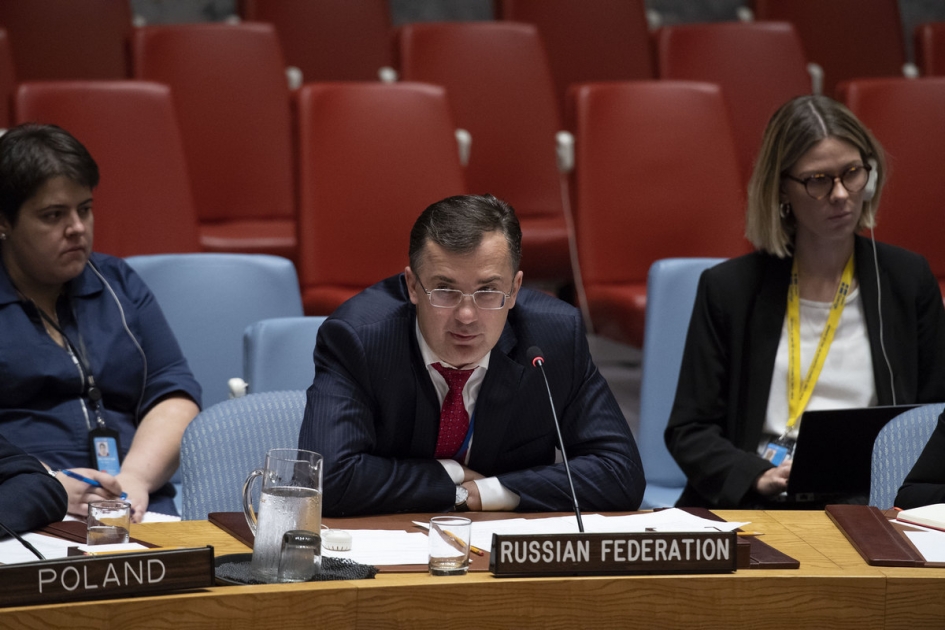Statement by Mr.Gennady Kuzmin, Deputy Permanent Representative of the Russian Federation to the United Nations, at the Security Council on the situation in Lybia (ICC Report)
I would like to congratulate you, Mr. President, on your presidency for this month and assure you that you will always have the Russian Federation’s full support and assistance.
I would also like to congratulate Bolivia on its successful conclusion of the presidency of the Council for the month of October. I would first like to say a few words about the situation in Libya in general. Sadly, there are no signs that it is improving. The country is divided into spheres of influence. The international community should focus its efforts on uniting it. Unfortunately, various external actors continue to place their own interests in Libya above the goal of a political settlement.
We take note of the sixteenth report of the Prosecutor of the International Criminal Court (ICC) on the investigation of the Libya dossier, although unfortunately we have seen no information in it about the investigation itself — that is, about the progress of the investigation. We have repeatedly brought up the ICC’s selective approach to this issue, and the report is yet another confirmation of that. For example, the report mentions the recent escalation of violence in Tripoli, in which civilians died, yet it simply records the fact that it happened. Not a single armed group is named as responsible for this dangerous outbreak of hostilities.
For some reason the Prosecutor was not interested in investigating the incident in which terrorists blew up two cars near a crowded mosque either. And each successive report dwells on the reports of the activity of the Libyan National Army in Derna. Of course, the interest in aspects of the migration issue in the context of the situation in Libya is understandable. But there is something one-sided about the ICC’s view of these problems.
We would like to point out that it is criminal organizations, firmly based in migrants’ countries of destination and chiefly in Europe, that are getting rich off the illegal business of transporting those migrants, while that key aspect is missing from the Prosecutor’s report for some reason. In paragraph 25 of the report, which we read carefully, we did note one sensible assessment, which is that the Council’s referral of the situation in Libya to the ICC may not prove successful. In that connection — and we spoke about this at the previous meeting (see S/PV.8250) — our delegation is fully resolved to provide members with every assistance in ensuring that the Council does not repeat this unfortunate experiment.
In principle, therefore, given the Court’s noticeably shaky reputation in the eyes of many States Members of the United Nations, attested to by the debate in the General Assembly on 29 October (see A/73/PV.27) — and as my colleague from the Netherlands correctly remarked when she said that the investigations “are not quick enough”, we believe that we can and should consider changing the frequency of the ICC’s briefings to the Council.
